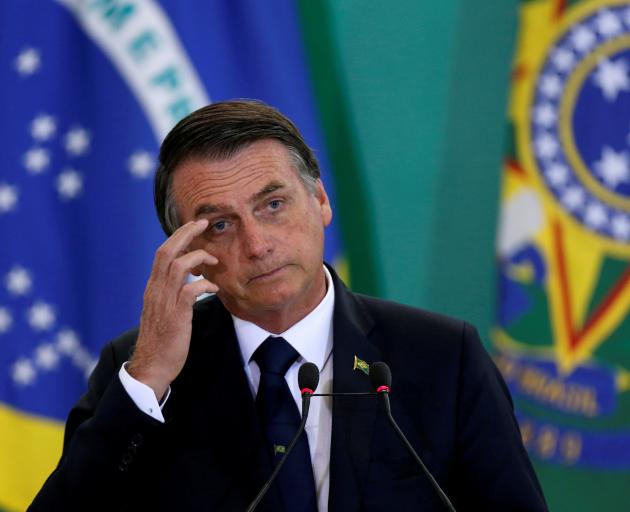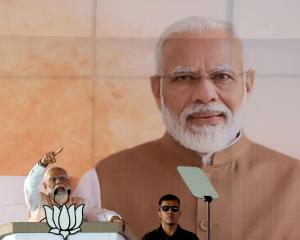
With the inauguration of Jair Bolsonaro as President of Brazil, the four largest democracies in the world are now all led by populist leaders (Brazil, India, Indonesia and the United States). Populism is also on the up in Germany and France, and played a not insignificant role in the pro-Brexit campaign.
A populist coalition rules Italy, the very birthplace of populism. It is expected that a populist alliance will do well in the May elections for the European Parliament this year. In young and fragile democracies such as Bulgaria, Poland and Hungary, populist leaders are constantly eroding some hard-fought-for civil liberties.
What is populism and what can be done about it?

Then, as now, established political groupings and institutions were blamed for the misery of the people. The call ``to drain the swamp'' (of established politics) was as popular then as it is today.
It is important to recall these origins. Current populists are as much products of an elite political and economic class as they were in Roman antiquity. The claim to be of and for the people is a ruse, but one that has proven to be extremely successful under the right conditions.
The claim by populists that they will rid the body politic of corruption is as hollow. Research by Political Science colleagues in the US shows that populists, both right and left-wing, tend to leave legacies of corruption and cronyism much worse than those that they originally opposed.

Is there anything more to populism than just the claim to represent the interests of the real people against the elite?
While it is still an evolving ideology, right-wing populists do share common beliefs. Linked to the notion of the pure and innocent people are nativist assumptions about the primacy of ``birth-culture'' as the most important identity trait to be protected against encroachment by globalists and migrants.
Globalists are those who believe that global interdependence means nations no longer can go it alone. Globalists also embrace the array of global and regional integration regulations that are aimed at reining in autarky and autonomy, both perceived to be bad for business.
Populists reject globalism, and they specifically challenge the notion that sovereignty has little meaning in a globalised world-economy. The hard power of the state can and should be used to resist the self-serving claims of the globalised elites who have made globalisation work for them exclusively, to the detriment of the hardworking people who have seen their relative position deteriorating constantly since the 1980s.

The goal is to undermine the liberal world order - which for many observers was, in any case, never as liberal towards the interests of the poor and marginalised at it pretended to be.
In its place, populists aim to revive a form of reactionary transactional internationalism that relies on the power and negotiating prowess of the state to carve out the best deal possible for the birthright nation in a competitive zero-sum world.
Multilateralism (co-ordination between three or more states for the sake of long-term gains for all) is out, to be replaced by a virulent mix of unilateralism (``putting Brazil/Britain/India/Indonesia/America first'') and aggressive bilateralism (intimidating significant others into submission).
There can be little doubt that the current wave of populism poses serious challenges to smaller states, such as New Zealand, whose prosperity depends on the diffuse reciprocity that multilateralism brings.
While there is no evidence that populism will find a ready audience in New Zealand, we do face the serious challenges that reactionary transactional internationalism poses.
How to go about meeting it?
It is not enough to try to persuade populists they are mistaken and do not understand the constraints that globalisation imposes on the state.
They understand these very well, and that is why they are out fighting it tooth and claw.
It seems futile to try to impose even more globalism on populists, given the fact that that is exactly what they set out to challenge.
Instead, our attention should turn to what exactly it is in our so-called ``liberal rules-based world order'' that alienates large chunks of people and makes them easy prey for the populist demagogue.
One is reminded of Voltaire's quip that the so-called Holy Roman Empire was not really holy, not Roman, and not an empire.
Maybe we should ask if the liberal, rules-based world order is indeed all it claims to be.
Domestically, populism can only be kept at bay by maintaining strong institutions and making sure that these are, and are perceived to be, working to the benefit of all, and not only a small elite.
-Philip Nel teaches in the department of politics at the University of Otago.
Comments
It's a problematic binary.
Ipso facto, if 'Liberal' governance doesn't work for 'the good of all', the fascists do, which has never been the case.
While we can agree that populist leaders will not solve the problems and have the wrong solutions, they do at least acknowledge that problems exist. The EU for example is so intractable over its precious 4 freedoms that it is incapable of adapting to changing circumstances. The Eurozone is creating big problems that need solutions and it seems change will only come from revolution.
'Revolution' is overthrow of rule of law and government. Some revolutions were justified, but old Europe doesn't need such civil unrest. Mobs who think they know best must be met by paramilitary and reservists.












